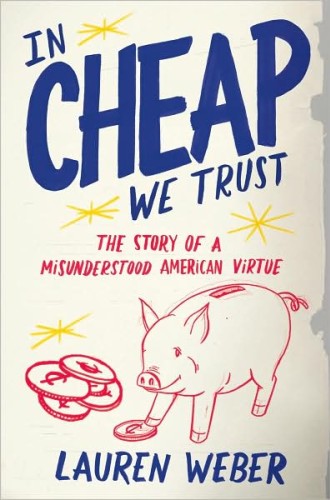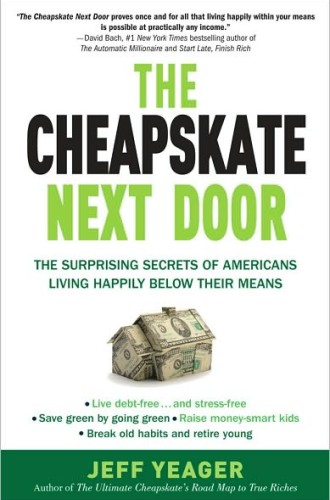A review of In Cheap We Trust and The Cheapskate Next Door
As part of a tradition noted for its thrift, I can be a little sensitive about the word cheap. One friend swears she remembers her missionary parents receiving some of the proverbial used tea bags, and I too have been known to regift. But while washing out plastic bags or shopping at thrift stores is one thing, believing that weak chamomile water constitutes a gift is another. So is cheapness closer to thrift or to parsimony? And can cheapness live peaceably with generosity, or does it devour and digest it instead?
Two new books—one a cultural history of thrift and the other a handbook of tips on living frugally—both parse the meaning of cheap, although they offer different exit ramps off the highway of consumption. One is the route of the financial journalist who carefully examines the historical data and values nuance rather than broad strokes. The other is the cheeky path of one who calls himself the "Ultimate Cheapskate" and revels in proclamations such as "The Joneses can kiss our assets." Both suggest that the faster we can get ourselves off the road of profligate consumption and waste, the better. And both claim that cheapness can indeed coexist with generosity, stories of used tea bags aside.
In The Cheapskate Next Door, a companion to his 2007 The Ultimate Cheapskate's Road Map to True Riches, Jeff Yeager packages the results of his ten-page questionnaire, which was filled out by hundreds of self-identified cheapskates. Added to this data are anecdotes he collected during visits with cheapskates across the country as he toured to promote his previous book. Yeager teases out the commonalities he finds among the cheapskates he surveyed, such as "A cheapskate values time more than money" and "A cheapskate is brand blind and advertising averse." His chapters focus on various aspects of life on the cheap: transportation, housing, eating, raising kids, bartering and recreation. He includes quick tips called "Cheap Shots" that he claims could save more than $25,000 a year. Aside from this rather inflated claim, let's just say that some of his tips are more helpful than others.






